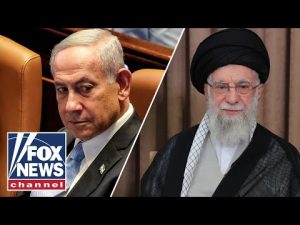In a critical discussion earlier today, the President of Israel, Isaac Herzog, spoke about the challenges and dangers surrounding Iran’s nuclear program. This conversation brought to light several key concerns that are not only significant for Israel but also for the United States and the wider world.
Firstly, President Herzog confidently asserted that Israel is taking decisive action to eliminate a pressing threat posed by Iran’s Fordow nuclear enrichment facility. He highlighted the fact that while Israel is a small nation, it is facing a much larger adversary that has continuously posed risks since the 1979 Islamic Revolution. This historic context is essential for understanding the evolution of threats from Iran, including their notorious history of aggression and terroristic actions.
The interview pointed out that the challenge is not just a bilateral issue between Israel and Iran. President Herzog made it clear that Iran has declared the U.S. as its enemy and has engaged in activities against American interests globally. The Israeli leader indicated that their actions are not simply about protecting their own country but also serve the national security interests of numerous other nations, including the U.S. This shared responsibility underscores how interconnected global security really is, especially when dealing with rogue states like Iran.
One cannot help but notice the urgency that characterized Herzog’s words. The Iranian threat is not new; it’s been building over decades, and recent events have escalated the risk. The October 7 attacks underscored this intensity, revealing the devastating scale of Iran’s involvement in regional and global terror. Herzog emphasized that the brutality witnessed is a direct result of Iran’s machinations, which aim to instill fear and destabilize the region further.
Interestingly, Herzog also pointed out that Iran’s reach extends beyond its borders, forming alliances with other global powers such as Russia and China. This support network helps Iran navigate economic sanctions and amplify its military capabilities. Herzog’s mention of the Houthi rebels in Yemen, equipped with advanced weaponry, showcases the far-reaching influence of Iran’s ideology—an ideology that fosters hatred towards Israel and the U.S.
In closing, the discussion highlighted that Israel’s actions regarding the Fordow facility are not only a matter of national defense but also a crucial step toward safeguarding global security. As Israel leads the charge in addressing this existential threat, it becomes evident that the fight against tyranny and terror requires collaboration and a united front. In an increasingly interconnected world, the unfolding situation reminds everyone that the fight for peace and stability is a shared endeavor—one that cannot be taken lightly.







